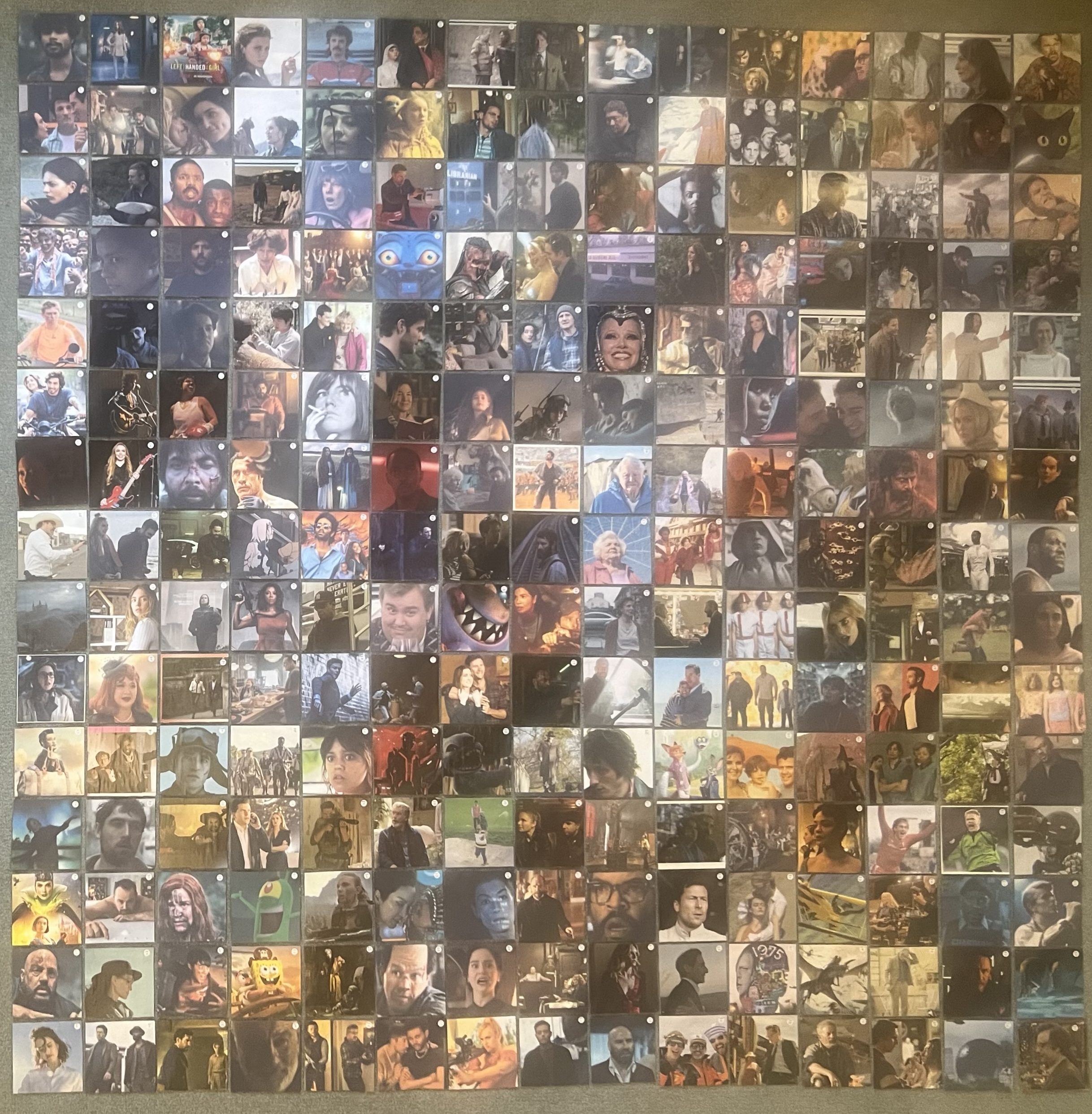I’d started to believe I would never know my MA marks; and a bit of me preferred it that way – with Schrödinger's Cat and the flask of cyanide snugly boxed up I could imagine whatever I like.
And what I like to imagine is that I’ve been awarded a distinction.
I could have tried to discover the marks – I could have contacted the person who will know or the administrators who frighten me – but that was daunting, and a bit like temping providence.
Then – one Tuesday afternoon five weeks ago – I was in the library and I happened upon the person who will know.
I have been in a dark funk since that day. I saw the term ‘dark funk’ in an article and it is a perfect description of the way I feel; a sad mix of gloom and craven passivity.
One darkening Tuesday afternoon, five weeks ago, I meet the person who will know my MA marks in the library.
It is impossible (for me at least) to ignore the bulky cat-box on the floor between us. So, when we have established how well we both look, I ask the question. I ask the person who will know when we might find out about our marks.
‘The Board met last week,’ the person who will know says, ‘your dissertation is with the administrators who frighten you and ready to collect.’ (she doesn’t actually call them that – I’ve never admitted to the person who will know that I am afraid of the administrators, although she might easily have guessed).
So I walk - limping slightly; the limp returns for the walk - very, very slowly, across the winter concourse that separates the library and the student centre, where the dissertation is ready to collect. The distance is about two hundred yards and the journey takes at least two hundred years. The student centre is jolly with light. Students and tutors, bathed in radiance from the windows, crisscross my path. They are chatting, and frowning and smiling and behaving as if nothing is odd.
I am waiting for the dissertation to be retrieved and there is a tap on my shoulder. It is the person who will know, again.
‘I just thought I would come across and tell you…’
I nod.
‘…we discussed your mark profile at the Board…’
I watch her mouth.
‘…and we decided to award you…’
I wait. It is like the ticking tense pause they do to be cruel on talent shows.
‘…a merit…’
And the cat is on its sad side at our feet. Its eyes are part open but milky-glazed and its body is a stiff as a branch.
‘…well done!’
‘Thank you.’
She speaks on, saying encouraging things about not letting the writing go and about not being disheartened by rejections.
I wonder – 'Is merit what they call a distinction at this university?' I wonder if the cat is merely in a black catty-funk, which would be understandable after being closed up in that nasty box for all those months.
The administrator who frightens me hands me the dissertation and I dare to touch the cat lightly with the toe of my shoe.
‘erm… So – does it go Pass, Merit, Distinction?’ I ask the person who will know.
‘That’s right.’
And there was really no need to check, we all already knew that the poor catty-sod had gone - you have been weighed and proclaimed kind-of ordinary.
I take the dissertation and sit in the disabled toilet and I look at my mark and I try to read the comments. 70%. I clawed my way to a 70% with the dissertation but it wasn’t enough to raise the mark profile.
70% is good. I have done nicely. I should be proud.
I stare at the comments with milky glazed eyes and I ask my self what did I expect.
What did you expect?
A spectacular dissertation mark to raise your mark profile?
An invite from the external examiner to meet his literary agent?
A handwritten request to join a prestigious writers' group?
A special prize?
A big clock?
Well no. Well yes. I don’t know – not the clock anyway, that’d just be ridiculous.
Aren’t you grateful to have passed? To start with you didn’t even know if you would pass.
I was being disingenuous when I thought that - I always knew I’d pass, I always knew I could get a distinction.
And how wrong you were. Why did you think you’d deserve such an accolade, why did you think you’d earned a distinction?
Because I worked a lot, because I tried so hard, because I wanted it – very much.
Ah! So. How do you think it all went wrong? Why do you think you weren’t awarded a distinction?
I don’t know. Maybe because I make fun of people to get cheap laughs?
Maybe because I don’t recycle plastic bottles if they’re oily and difficult to wash out?
Maybe because I added an espresso to my latte without telling the lady at the till?
It’s none of those things, is it?
No.
What about you weren’t awarded a distinction because of these things:
You didn’t make yourself write when you reckoned you were in pain; too weary; you needed to tidy drawers out, urgently?
You sometimes wrote lazy self-indulgent drivel rather than answering the question?
You sometimes cited smartass paragraphs from hard books pretending you’d read the whole smartass book?
Well?
Could be... But still, I really did want it – very much.
The person who will know makes such a point of how nicely I have done that, after a day or two, I am able to bask in the assurance that at least no one will have a better mark profile than mine.
Then – I meet the friend whose dissertation mark is so spectacular that it qualifies her for the big clock (were such a thing not ridiculous). And, with a sickening sickness, I realise that there are people with much better mark profiles than mine; that the person who will know followed me from the library to the student centre to save me from myself, to save me from my own stubborn delusions.
The person who will know knows me too well. She realised that when I saw my 70% dissertation mark I would continue to nurse vain hope until the official results were posted. The person who will know opened the cat box and showed me the merit to stop me making any more of a fool of myself. Better for me to be in a dark funk than for students and tutors to see me cutting a confident swath across the light-drenched concourse between the student centre and the library pulling a branch-stiff dead cat lashed to a set of old pram wheels.
I have friends with distinctions and I must be glad for them. I am glad for them, but I wish it was me. And it will always be this other thing now – on the record, on the lips, in the mind, until I am gone. No, even after when I am gone.
So, 70% for the dissertation is good. I have done nicely. I should be proud of myself.
But that is not how it felt on the day that I discovered that I didn’t have a distinction.
ps my friend, Valerie, did her MA at Manchester was awarded a distinction and I am very, very proud and pleased for her!
pps The official results have just been posted and my overall average (by my calculation) is 69.11111111 (the 1s go on for ever). A number that has a spectacular quality all of its own.
My favourite films of 2025. Part nine: 25-1
-
OK. Here we go. This is the big one. These were my very very favourite
films of 2025. Obviously, there are films here that are in everyone’s
best-of-2025 l...
2 weeks ago

































.JPG)


